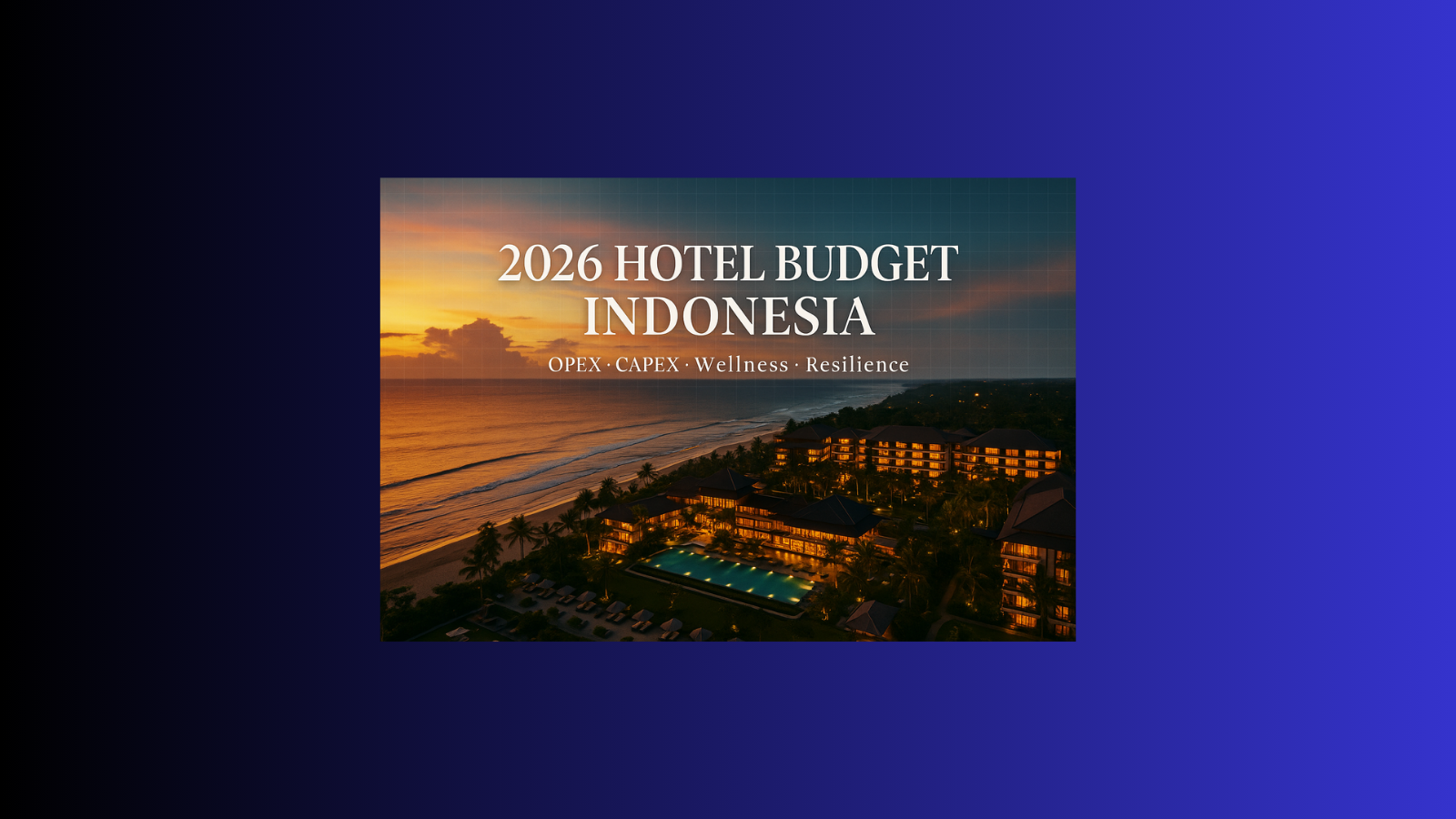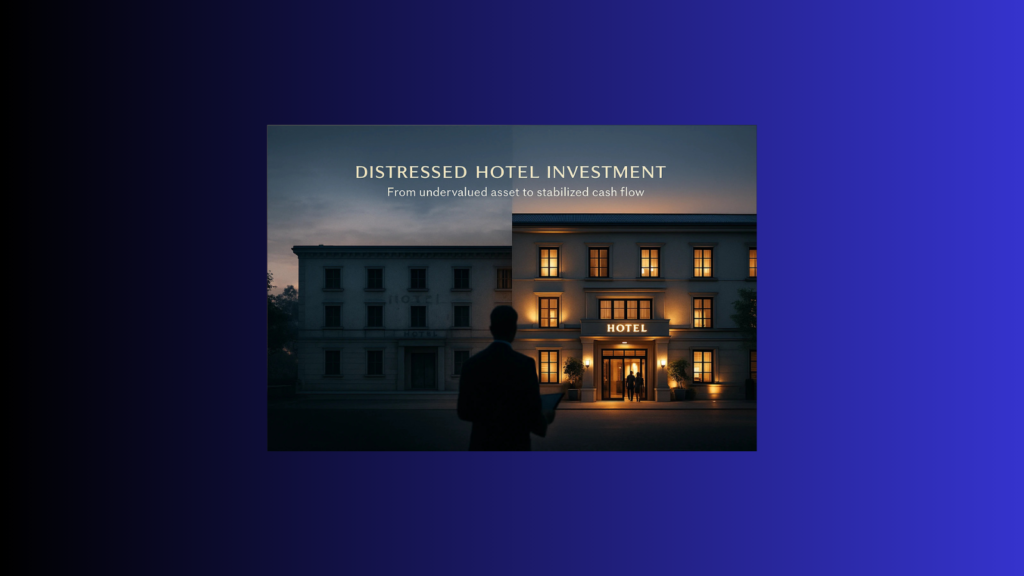For owners and operators, the 2026 hotel budget Indonesia is more than a spreadsheet exercise — it is a leadership test. Hotels don’t collapse from one dramatic failure; they bleed out from a thousand small assumptions. The greatest risk for 2026 isn’t inaccurate formulas — it is leadership blindness.
The Global Outlook: Hospitality Budget Pressures in 2026
The global hospitality sector faces cost escalations across every line of OPEX and CAPEX:
- Utilities: Energy and water prices continue to rise, fueled by geopolitical volatility and supply chain pressures.
- Insurance: Climate risk is pushing premiums up by double digits. In some markets, resorts face 15–20% annual increases.
- Staffing: Turnover remains high, and cutting training budgets accelerates churn, which doubles replacement costs.
- Technology: Postponed upgrades to PMS and distribution systems increase OTA dependency and cybersecurity exposure.
- Wellness & Lifestyle Demand: Guests are no longer buying “rooms” — they are buying transformation. Delaying wellness CAPEX risks losing entire market segments.
According to WTTC’s global outlook, tourism demand is expected to grow steadily into 2026, but only operators who anticipate cost surges will maintain profitability. For accurate planning, the 2026 hotel budget Indonesia must price in sustained increases across utilities, insurance, staffing, technology, and wellness.
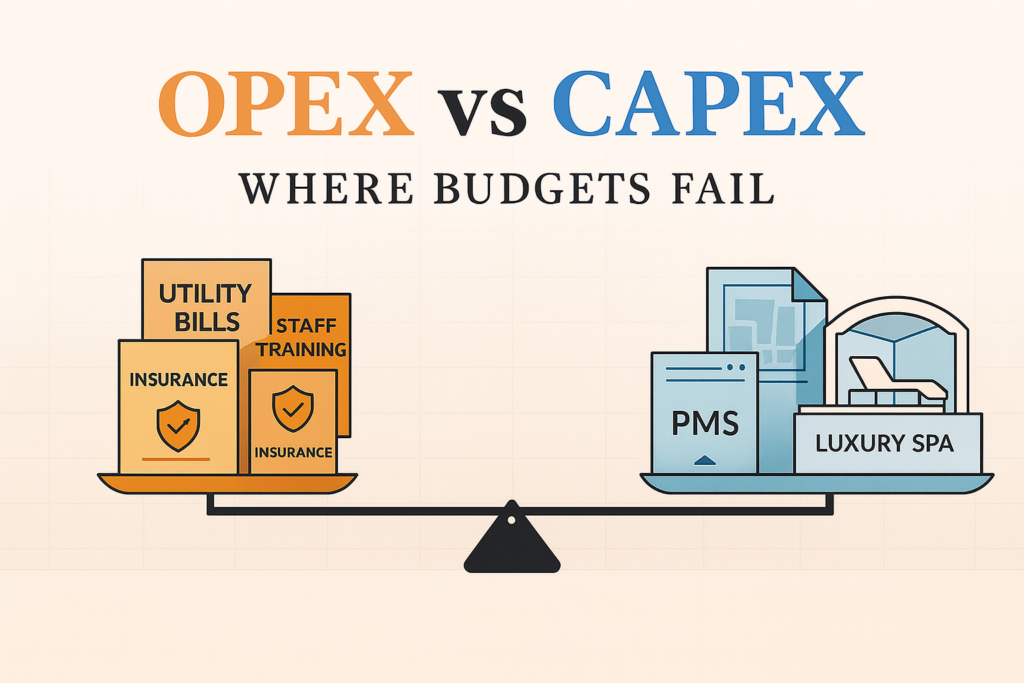
OPEX vs CAPEX in the 2026 Hotel Budget Indonesia
Budget failures often come from treating OPEX and CAPEX as simple expense lines — rather than strategic levers.
OPEX Blind Spots
- Underestimating utility escalation.
- Cutting training OPEX, leading to churn and guest dissatisfaction.
- Treating wellness operating budgets as optional rather than central to guest experience.
CAPEX Blind Spots
- Deferring renovations → ADR erosion.
- Delaying technology upgrades → rising OTA costs and cybersecurity risks.
- Ignoring wellness/health infrastructure → loss of competitive positioning against more progressive properties.
Budgeting in 2026 is not about “cut versus spend.” It is about spending where it saves you later. This is exactly where the 2026 hotel budget Indonesia succeeds or fails.
What the 2026 hotel budget Indonesia must account for
Bali and Indonesia represent a stress test for hospitality budgets. Rising costs, alternative accommodation competition, and shifting guest demand converge here first.
- Energy Costs: PLN tariff restructuring and imported fuel dependency mean higher OPEX for 2026.
- Insurance: Coastal properties in Bali face heightened climate risk, with premiums climbing double digits.
- Talent & Training: High turnover combined with rising wages — cutting training is not an option without service collapse.
- Wellness & Health: Bali is no longer just a leisure destination. Guests expect recovery therapies, fitness spaces, and mental wellness offerings. Hotels that ignore this in CAPEX planning will lose market share to more progressive operators.
- Alternative Accommodations: Airbnb’s economic footprint in Indonesia exceeded IDR 35 trillion in 2024. Ignoring villa competition in the 2026 hotel budget in Indonesia is leadership blindness.
Related Reading: Airbnb in Indonesia 2025: Economic Boon or Regulatory Blind Spot?
The Illusion of Cost-Cutting
When pressures mount, many owners look first to F&B, training, or wellness budgets for cuts. But these are precisely the areas that determine brand positioning and guest loyalty.
- A single uninspired restaurant can poison a property’s reputation.
- Neglecting a spa or gym signals irrelevance in a market driven by wellness.
- Cutting training undermines every service touchpoint — from check-in smiles to revenue-driving upsells.
Research by STR confirms that underperforming F&B outlets drag down guest satisfaction and total hotel performance.
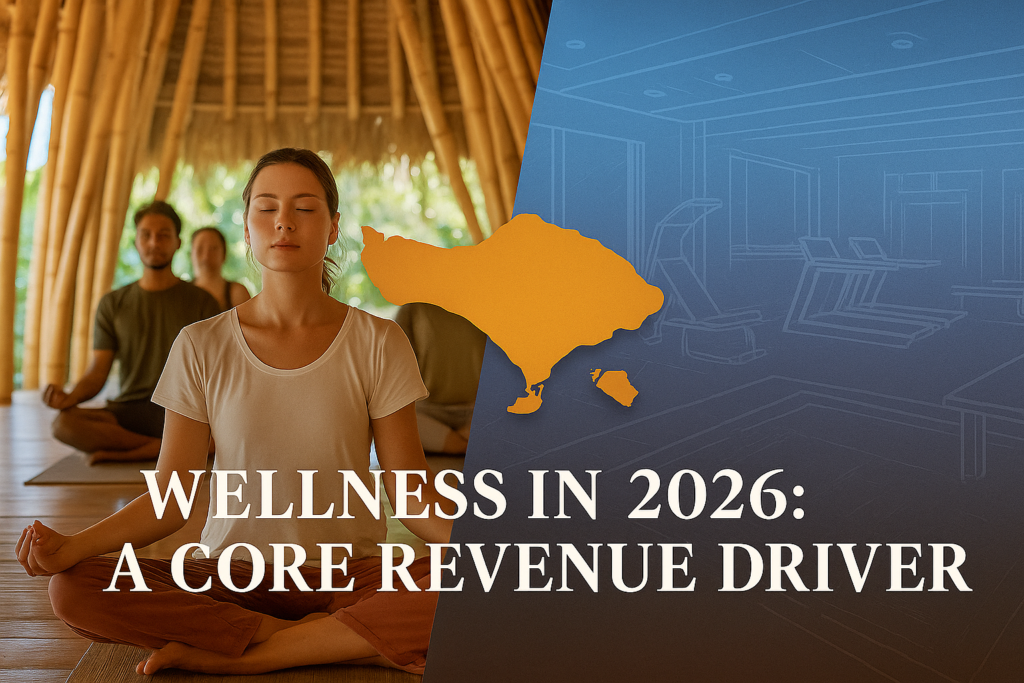
Wellness & Health: From Optional to Essential
Wellness is not a luxury line item. It is now central to occupancy, ADR, and loyalty.
- Properties with integrated wellness enjoy 25–40% higher ADRs and 12–18% higher occupancy year-round (Global Wellness Institute).
- Travelers increasingly seek nutrition programs, recovery therapies, fitness experiences, and mental health retreats.
- Bali, Thailand, and Europe are already competing for wellness-driven guests. Hotels that treat wellness as optional in 2026 budgets will actively plan for mediocrity.
Related Reading: Lombok Tourism Growth Strategy
Checklist: 6 Non-Negotiables for the 2026 Hotel Budget Indonesia
- Utilities: Factor in +15–20% escalation.
- Insurance: Budget for climate-driven premium increases.
- Training: Ring-fence OPEX for retention and guest experience.
- F&B: Protect innovation budgets — it is a core profit engine.
- Wellness & Health: Treat wellness CAPEX as essential infrastructure, not optional.
- Competition: Model alternative accommodations like Airbnb into revenue forecasts.
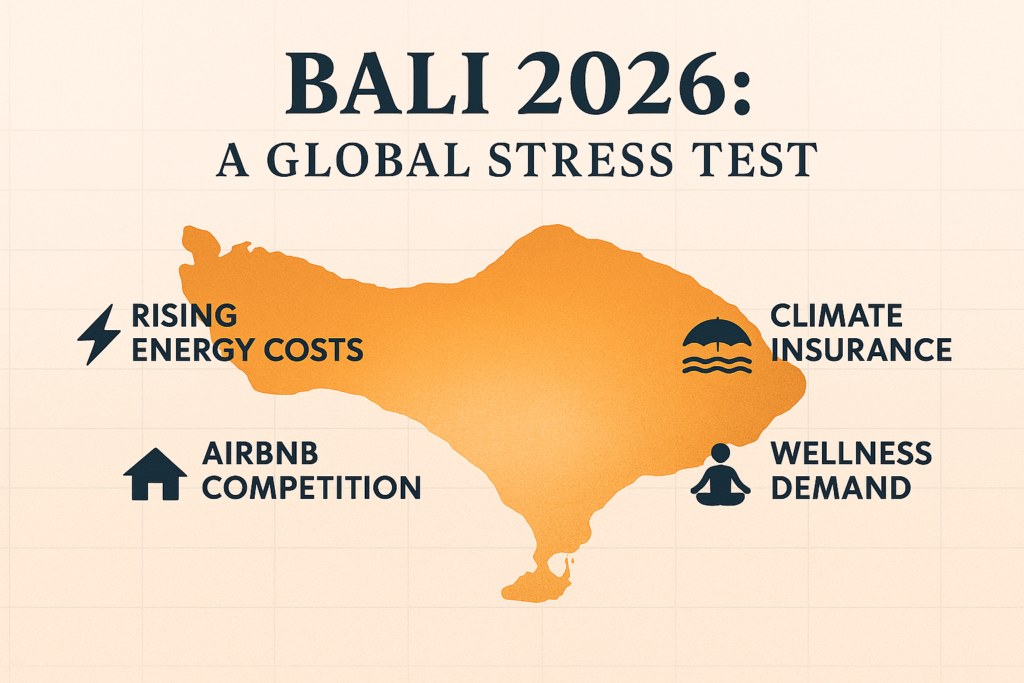
Closing: Bali and the 2026 Hotel Budget Indonesia
Bali is more than a destination. It is a preview of the global future: rising costs, Airbnb competition, wellness demand, and regulatory gaps.
Leaders who fail to recognize these budget blind spots in the 2026 hotel budget in Indonesia will not just miss projections — they will erode their brands. Those who lead with foresight will capture loyalty and resilience.
Related Reading: Managing Destination Overcrowding in Bali

Closing CTA
At Zenith Hospitality Global, we help owners, developers, and investors build budgets that go beyond spreadsheets — aligning OPEX, CAPEX, F&B, and Wellness into strategies that deliver resilience and growth in 2026.
Want to continue the conversation?
Join our Zenith Hospitality Global LinkedIn Group for insights, debates, and direct access to our leadership team.
Looking for expert hospitality management services in Bali? Partner with Zenith Hospitality Global and elevate your property to 5-star standards.
Email: hello@zenith-hospitality.com
Phone: +62 821 4480 7110
Website: https://zenith-hospitality.com/

